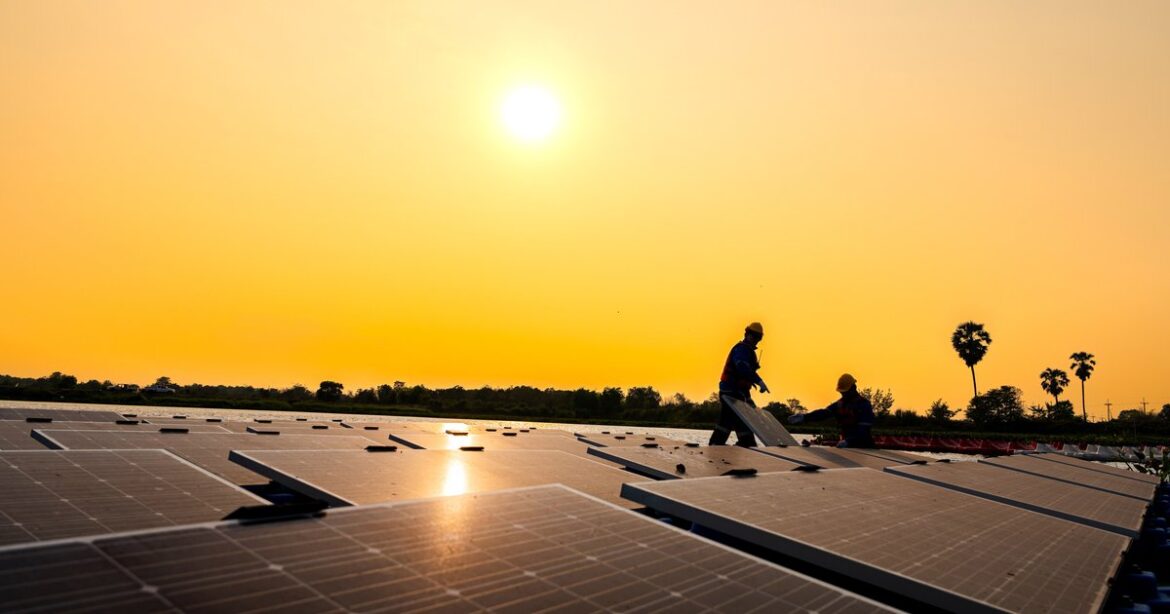by Joseph Kibugu, Africa Regional Manager, Business & Human Rights Resource Centre
As the world prepares to gather in Brazil for COP30, communities, defenders and rightsholders across the ocean are living the reality of both climate change and the world’s efforts to transition to cleaner, more accessible energy. While the latter cannot come fast enough, the process for getting there demands increasing scrutiny in the African context if we are serious about a global just transition – rather than simply replacing one form of energy with another.
Africa only accounts for just 6% of global energy use, an access gap that will most likely be plugged by wind, geothermal and solar resources on the continent. The continent also has an abundance of minerals needed for the energy transition – the Democratic Republic of Congo (DRC) provides more than 70% of the global supply of cobalt, and huge copper deposits in Zambia and Zimbabwe are among the top six sources of lithium globally, while South Africa is rich in manganese.
Behind this story of abundance is a systemic problem. Research by the Business & Human Rights Resource Centre (the Resource Centre) reveals a litany of alleged human rights abuses associated with the mining of critical minerals, as well as deployment of renewable energy projects. The recently published Transition Minerals Tracker deep-dive analysis on Africa records human rights abuses including failures to respect local communities’ right to negotiate and access information, environmental degradation, and violations of workers’ rights.
Companies involved in the renewable energy value chain are not taking measures to address the human rights risk in the sector. For instance, outreach to 15 banks financing the extraction of transition minerals in South Africa revealed they are not taking adequate measures to avoid contributing to abuses in the sector. Mine workers and local communities where mining takes place are still steeped in poverty – despite the mining companies reaping high profits from exploiting their land. A report on cobalt mining in DRC claimed that the subcontracting model employed by large mining companies erodes workers’ rights and exacerbates racism, discrimination, degrading treatment and inadequate health and safety protection. The Resource Centre reached out to three companies to respond to the allegations. Glencore and CMOC responded. Eurasian Resources Group did not respond. It its response, Glencore undertook to “review the…human rights incidents”. In addition, community advocates often find themselves in a situation of great power imbalance, with threats coming from either state, sometimes with the knowledge and complicity of businesses.
The current model is not sustainable. Communities are protesting, filing lawsuits at home and extraterritorially, in some cases rejecting these projects outright. A better path, one which secures companies’ social licence to operate, is possible. The Resource Centre, in consultation with partners and allies, has distilled years of data and formulated a set of three core principles for a just energy transition based on human rights in business and investment. First, workers and local communities should be recognised as key stakeholders in the design of energy transition projects. This ensures that they share the benefits of the transition through such measures as securing decent work and wages for the workers and guaranteed financial or material benefit for local communities as opposed to tokenism. Second, given the growing body of evidence on the failure of voluntary standards to change company behaviour, governments should mandate environmental and human rights due diligence, including through offering incentives to companies that demonstrate leadership in respecting human rights. Finally, the wave of repression on frontline defenders, including those fighting corporate impunity, calls for companies and state bodies to guarantee not only power symmetry in negotiations, but that such engagement and efforts to seek corporate accountability are conducted in an environment that is free from fear and intimidation.
COP30, hosted in a global majority country this year, should be an opportunity for reflection and re-commitment to a transition that is fast but also fair. Decision makers should listen and respond to them, by calling for the adoption of enforceable standing. There should be clear demand for corporate accountability, inclusion of workers and local communities, and a climate financing model that respects and embeds these principles. Companies should embrace human and environmental due diligence, even when it is not mandated.


WACOCA: People, Life, Style.